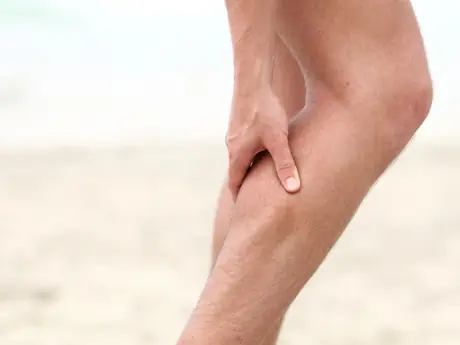Q: During the last two weeks of training I feel like I need to wear a big sign that says “Caution: Tapering Marathoner.” What advice do you have for our readers on surviving taper madness?
A: I always tell people not to freak out if they start feeling weird aches and pains – give yourself a day or two before worrying about it. Keep busy with things that aren’t too physically intensive— read a good book, take the dogs out for walk, just find something to keep yourself busy without driving everyone else crazy. You should not try something brand new—no new kickboxing class, no stand-up paddleboarding or rock climbing. Do more laid-back things to keep you busy.
Q: What’s your go-to post-workout snack?
A: When I was training really hard I liked Generation UCAN, and right now I do a BCAA (Branched Chain Amino Acids) drink post-workout to help with recovery before I head home and make a full meal. On long run days I feel like I don’t stop eating.
Q: I know you have Celiac Disease so your carbs are the gluten-free kind. Along those lines, how much should we really be carbing up? I see some marathoners adopting the lower-carb paleo diet, but then I read articles saying I need to ingest 500 grams of carbs on the day before my race to max out my glycogen stores. Thoughts?
A: The nutritionist that we use recommends that our carb loading for the marathon be a two to three day process—but it isn’t an over-the-top process of eating three to four plates of pasta every day. It’s adding a little more carbs to your diet than you’ve had in the past week. In the days right before the race, it’s important to eat more refined carbs (think white bread instead of whole wheat) so you don’t have too much fiber in your system that could cause digestive issues on race day. Keep your diet pretty bland and easily digestible.
Q: You’ve been on the biggest stage in the world: The Olympics. Talk to me about how you calm your pre-race jitters.
A: I think a big piece for me is using the mantras and visualizing the race going the way you want, but also thinking about what you will do if things don’t go well. That way if things happen in the race, you’ve thought it through—what happens if I have to use the restroom, or lose my hydration bottle, etc. Work through scenarios in your mind and see yourself coping successfully with each of them. I also tell people to take the first race as a learning experience and know that the next time will be much easier. There’s something to be learned from each race. Know what they will be serving on the course (what sports drink, what brand of gels, etc.) and try them beforehand to know if it’s an option for you.
Q: You coach all kinds of runners with Atlanta Track Club—young, old, elite and amateur. What’s one piece of running advice that you feel all runners should heed? 5K to marathoners?
A: Do what we call the “Big 5”—stretching the five big muscle groups in five minutes. Every participant in our program stretches their quads, hamstring, hip flexors, glutes, and calves before they can leave for the day. Do this and you’ll feel better the next day, I promise.
Connect with us on Twitter, Facebook, Instagram or Pinterest for more tips, recipes and ideas to fuel your ACTIVE life.
 Find your next race.
Find your next race.
- 3
- of
- 3
About the Author
Jennifer Fox
Get ACTIVE on the Go


Couch to 5K®
The best way to get new runners off the couch and across the finish line of their first 5K.
Available for iOS | Android






Discuss This Article